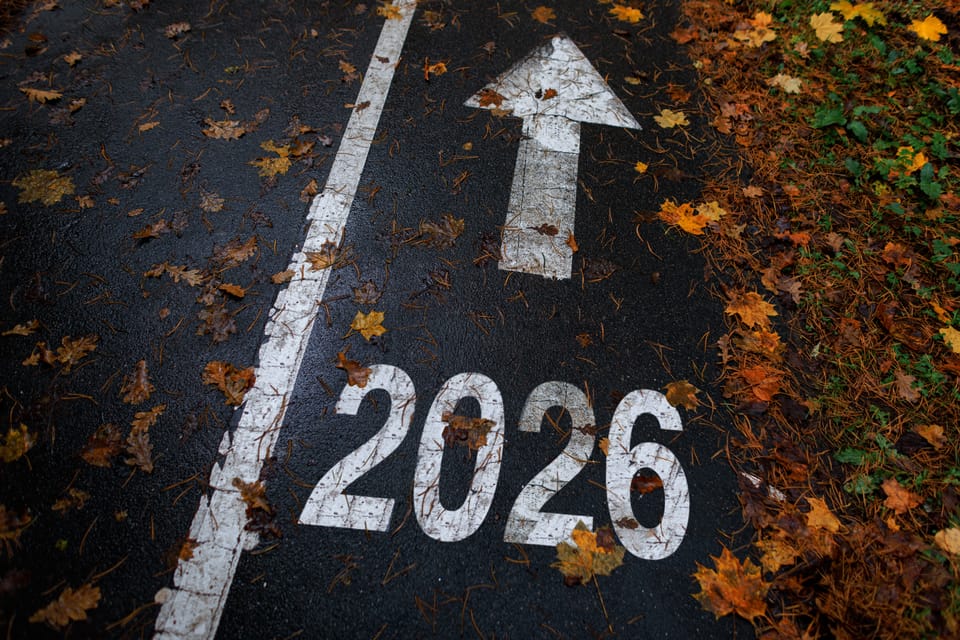Earning Points for Kids: How to Give Your Children a Head Start in Travel Rewards
Traveling with children often means higher expenses, but what if you could transform those family trips into future adventures? By enrolling your kids in airline loyalty programs, you can accumulate miles that lead to free flights, upgrades, and more.


If You Only Had 60 Seconds to Read This Article
| Click Here 🤏🏻
Starting early with airline loyalty programs can give children a massive advantage. By opening accounts for minors as young as two, parents can begin accumulating miles that grow over years, eventually funding free flights, upgrades, or family trips. Even small domestic flights and first-flight bonuses add up, turning childhood travel into long-term value.
Many airlines worldwide allow minors to have their own accounts, including Delta, United, JetBlue, British Airways, Lufthansa, Singapore Airlines, Emirates, and more. Programs often include family pooling or transfer options, letting parents combine miles from multiple accounts for faster redemption. Europe, Asia, the Middle East, Africa, and Latin America all have options for children, making global accumulation possible.
Since children cannot hold credit cards, earning strategies focus on flight activity, partner activity, and taking advantage of promotions. Booking separate tickets, enrolling in promotional campaigns, and transferring or pooling miles strategically are key ways to maximize value without spending directly on the child’s behalf. Regular monitoring ensures miles don’t expire and that redemption opportunities are optimized.
Beyond the points, enrolling children teaches financial literacy and planning. Children learn the value of saving, strategic spending, and patience while building real, tangible travel benefits. By the time they reach teen or adult years, they can manage their accounts, participate in promotions, and enjoy substantial travel rewards, giving them a head start most adults never achieve.
Everything else you need to know is just below 👇🏻
🎞️: Powered by NotebookLM @ UpNonStop
So many parents think loyalty programs and points are strictly adult territory. Credit cards, hotel stays, and frequent flyer accounts are tied to grown-ups, so naturally, children are left out of the equation.
But what if you could start earning miles for your children from the moment they’re born? What if you could build up balances that would later allow free flights, business class upgrades, or family adventures without spending another cent?
The truth is, you can. And it’s easier than you think - but only if you approach it strategically.
This guide is for parents who want to give their kids a head start in travel rewards. We’ll cover which airlines allow minors to have accounts, how to earn points without giving a child a credit card, timing strategies, pooling and transfer tricks, and practical ways to maximize value over the years.
By the end, you’ll have a roadmap to turn childhood travel into a lifetime advantage.
Why Start Earning Points for Kids?
Starting early is the ultimate advantage. Frequent flyer miles work like compound interest. A few thousand miles a year may seem trivial, but over a decade it can transform into an international business class ticket or multiple domestic flights. Accumulating miles for a child has multiple benefits:
- Compound growth: Miles accumulate over years and can be redeemed for high-value travel experiences. Starting at birth gives the account maximum time to grow.
- Family flexibility: Points earned in a child’s account can often be redeemed for family trips, meaning the miles aren’t wasted while the child is too young to travel alone.
- Financial literacy: Tracking miles and redemptions introduces children to concepts of saving, value, and planning without making it feel like a lesson.
- Cost savings: In the long term, miles accumulated for children can cover entire trips that would otherwise be prohibitively expensive, particularly for premium cabins or international flights.
The earlier you start, the more powerful this advantage becomes. Waiting until a child is a teenager reduces the compounding effect and misses many first-flight or new-account bonus promotions.
Airline Programs That Allow Minors
Not all frequent flyer programs allow children to have their own accounts. The following programs are structured to let parents open accounts for minors, with parental oversight. This is essential because most airlines require either proof of parental consent or adult management of the account until the child reaches 18.
North America
Delta SkyMiles allows children under 18 to have accounts with parental management. Miles never expire for minors, which means points earned early will remain available for redemption years later. Delta also offers family pooling in certain regions, allowing multiple family members’ balances to be combined into a single usable pool.
United MileagePlus accounts can be opened for minors, and the program supports family pooling for up to five members. Miles earned in a child’s account can later be transferred to a parent account, making redemption for family travel simpler.
JetBlue TrueBlue allows children to have accounts and includes family pooling options for up to seven members. Alaska Airlines Mileage Plan permits children to earn miles in their own accounts, which can be used for flights or transferred to other family accounts. Hawaiian Airlines’ HawaiianMiles program also allows minor accounts under parental management, and points can be used for family travel. Air Canada Aeroplan allows children to have accounts and offers family sharing for up to eight members. Spirit Airlines Free Spirit, Frontier Airlines myFRONTIER, and Allegiant Air myAllegiant all allow children to earn miles in their own accounts with family pooling options.
Europe
In Europe, British Airways Executive Club allows children under 18 to have accounts. Miles can be used for family travel, and the program permits combining Avios from multiple family members. Lufthansa Miles & More permits minors to open accounts and use miles for family redemptions. Air France Flying Blue and KLM Flying Blue allow children aged two and above to have accounts, with family pooling and miles that do not expire for members under 18. Swiss International Airlines, Austrian Airlines, and Finnair Plus also offer minor accounts with family-friendly benefits. Scandinavian Airlines EuroBonus allows children to have their own accounts, with miles usable for family travel. Turkish Airlines Miles & Smiles and Iberia Plus similarly allow children to have accounts and combine miles for family use. Aer Lingus AerClub allows minors to participate, accumulating points for later family redemption.
Asia & Pacific
Singapore Airlines KrisFlyer permits children aged two and older to have accounts, with miles usable for family travel and transfer options to parent accounts. Cathay Pacific Asia Miles allows children aged two and above to join, earning miles for future trips. Qantas Frequent Flyer allows children to have accounts, as does Japan Airlines JAL Mileage Bank. All Nippon Airways (ANA) Mileage Club allows minors aged 13 and older to have accounts, with family accounts available for members living outside Japan. Korean Air SKYPASS has no minimum age requirement and permits family accounts. Emirates Skywards Skysurfers allows children aged two to 17 to earn miles, eventually qualifying for Silver or Gold status. Qatar Airways Privilege Club and Thai Airways Royal Orchid Plus permit minor accounts with miles usable for family travel.
Middle East
Etihad Guest allows children aged two and above to have accounts, with family accounts and expiration rules that can be managed by periodic account activity. Oman Air Sindbad and Saudia Alfursan allow children to earn miles in minor accounts with family redemption capabilities.
Africa
Ethiopian Airlines ShebaMiles allows children to have accounts, and Kenya Airways Flying Blue follows a similar model to Air France/KLM, allowing minor accounts and family pooling.
Latin America
LATAM Pass allows children to have accounts with miles usable for family travel. Avianca LifeMiles and Copa Airlines ConnectMiles also permit minor accounts and redemption for family travel.
How to Earn Miles for Children Without Credit Cards
Children cannot hold credit cards, so the focus must be on activity-based earning:
- Book flights in the child’s name: A short domestic flight can generate a few hundred miles. Even inexpensive flights count, and first-flight promotions often add bonus miles.
- Enroll in airline promotions: Many programs offer bonuses for first flights, first account activity, or milestone birthdays. Sign up for newsletters and monitor offers to capitalize on these opportunities.
- Use family pooling strategically: Pool minor accounts with parent accounts to reach redemption thresholds faster. Pooling combines small balances into usable amounts for domestic or international trips.
- Transfer miles from parent accounts: Certain programs, such as Singapore Airlines KrisFlyer or United MileagePlus, allow parents to transfer miles into a child’s account or vice versa. This can accelerate accumulation and enable premium redemptions sooner.
- Leverage partner activity: Hotel stays or car rentals booked in the child’s name may earn airline miles if the child’s account number is used. This allows points to grow without the child spending money directly.
Timing Strategies
Timing is critical for maximizing value. Here’s a breakdown by age:
- Birth to age 2: Open accounts immediately. Book first flights (even inexpensive domestic tickets) to trigger first-flight bonuses.
- Toddler (3-5): Use small paid flights or partner activity to generate additional miles. Check for seasonal promotions, double-mile campaigns, or family events that award miles.
- Elementary (6-12): Family trips in the child’s name generate meaningful miles. Pooling becomes powerful here, combining multiple children’s accounts to fund a full domestic or short international trip.
- Teen (13-17): Teach children to track promotions and plan travel. By this age, they can understand redemption strategy and prepare for independent account management at 18.
Family Pooling: The Game-Changer
Family pooling allows small balances in multiple minor accounts to combine into substantial redemption amounts. Most North American and European programs now allow parents to pool points from minor accounts. This accelerates reaching thresholds for long-haul flights or premium cabin redemptions. For instance, three children each earning 5,000 miles can pool with parent accounts to generate a single redemption of 20,000 miles, enough for a domestic round-trip or a discount on an international ticket.
Tricks to Maximize Points Accumulation
- Enroll infants early: Even if your child is not flying immediately, account creation ensures you can claim first-flight bonuses later.
- Book separate tickets: Lap infants often don’t earn miles. Purchase a separate ticket whenever possible.
- Monitor airline promotions: Airlines frequently run promotions for new accounts, first flights, or partner activity. Timing flights and stays to coincide with these offers can yield significant bonus miles.
- Transfer strategically: Transfer points between accounts to reach redemption goals sooner, particularly for international travel.
- Redeem for maximum value: Avoid using miles for low-value redemptions like short domestic flights if premium cabins or long-haul trips are possible. Patience and planning maximize the return on early miles accumulation.
Teaching Children About Miles
Frequent flyer programs aren’t just about travel - they can be used to teach financial literacy.
Tracking balances, learning how miles accumulate, and seeing the value of strategic redemption demonstrates saving and planning in a tangible way.
Even young children can understand that miles earned today can result in free travel in the future.
By the teen years, children can actively participate in promotions, identify sweet spots for redemption, and prepare for managing their own accounts.
Mistakes to Avoid
- Waiting too long: Delaying enrollment wastes compounding opportunities.
- Ignoring inactivity rules: Some programs close accounts or expire miles if there is no activity. Keep minimal transactions or transfers to maintain active status.
- Over-redeeming early: Small balances accumulate slowly; using them prematurely reduces potential value.
- Missing promotions: Bonus campaigns often yield the highest per-flight returns. Missing these is leaving miles on the table.
Long-Term Strategy
A phased approach is most effective:
- Phase 1 (Birth): Open accounts, claim welcome bonuses.
- Phase 2 (Toddler): Book first flights, start small balances, track early promotions.
- Phase 3 (Elementary): Pool family points, leverage partner activity, monitor seasonal promotions.
- Phase 4 (Teen): Introduce children to redemption strategy, teach account management, plan high-value redemptions for family or solo travel.
Real-Life Examples
- Baby Starter Account: A six-month-old with a Delta SkyMiles account earns 200 miles from a short domestic flight and triggers a 500-mile first-flight bonus. By age two, the account has 2,500 miles.
- Family Pooling Payoff: Three siblings each accumulate 5,000 miles. Pooling with a parent account results in 20,000 miles, enough for a family domestic weekend trip.
- Teen Redemption: A 16-year-old with an account started at birth has 50,000 miles and books an international summer trip using points. They learn about “sweet spot” redemptions and prepare for managing their own account at 18.
Final Thoughts
Earning miles for children is a strategy that pays off in multiple ways: financial, educational, and experiential.
By enrolling children in airline loyalty programs, strategically pooling points, monitoring promotions, and teaching children about redemption strategy, parents can create a substantial travel advantage.
Miles accumulated over childhood can fund free flights, premium travel experiences, and lifelong memories.
Starting today ensures that by the time your children are ready to travel independently, they will already have a balance that many adults would envy.




